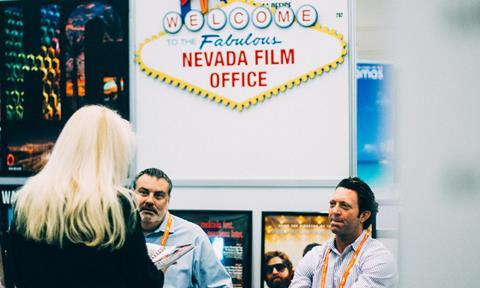The AFCI offers enables film commissions to learn from each other and keep up to date with the production sector.

Fostering a supportive environment among members is one of the ways the Association of Film Commissioners International (AFCI) continues to grow as a critical industry resource.
For every established regional or national production incentive that champions the audiovisual industry, supports tourism and increases economic impact in a region or country, there are many more similar schemes waiting in the wings. The AFCI exists in part to bring film commissioners together to share information and help each other find the best ways to grow their respective industries.
A year-round platform of online networking and education plays its role, as do events including the AFCI Locations Show and Global Production & Finance Conference, set to take place in Los Angeles from April 6-8. It is at this annual show where members such as Film Commission Chile, Ontario Media Development Corporation and the Lower Austrian Film Commission meet and reunite.
It is also the occasion where new players such as the Argentina Film Commission come to adopt best practices that suit their needs. “The film commissioners know that what happens with one incentive will affect somewhere else,” says AFCI executive director Kevin Clark. “They’re competitive but collegial.

“For the member, they need to get feedback from the industry on how [an incentive programme] might be structured,” he explains. “What kind of filing process is it going to be, what will be eligible, what are the requirements to work with a local production company.
“Last year [the country of] Georgia brought its minister of economic development and, when they can see what questions people ask, it helps them come to grips with what they need to set up.”
However, it is not just about interaction among members. The AFCI show is crammed with producers, writers, directors and scouts looking to pick up the latest tips on how to make their productions as cost-effective as possible.
“Taking a production somewhere is a big investment, so the value in meeting other producers or commissioners is considerable,” Clark says. “The big six studios are very informed about what’s happening [with incentives]. At this show it’s going to be your small- to mid-sized production companies who don’t track incentives as closely. They can go to the show and learn a ton.”
Fresh incentive
Clark is accustomed to travelling to festivals and last December he could be found at Ventana Sur in Buenos Aires, where he presented case studies of successful film commission campaigns and tourism tie-ins. There, he was able to spend time with Argentina’s national film commissioner Ana Aizenberg, whose organisation is working to launch the first nationwide incentive, possibly this year.

Aizenberg is due to attend the show in April. “Talking with filmmakers directly can help set up that programme and people can see what other countries are offering in terms of percentages and how it’s being marketed,” Clark notes.
Running concurrently with the Locations Show is the Global Production & Finance Conference, which takes place April 6-7. The conference presents practical and detailed advice on specific procedures and aspects of the business. In partnership with Lightsource Asia Media Group, the conference schedule includes panels on shooting in the Caribbean, financing, working in China and sustainable production.
Beyond the show, AFCI offers an opportunity to learn. “The primary service we offer film commissioners is educational,” Clark says, in reference to the online AFCI university.
This is an accessible, three-tiered education programme that offers everything from basic courses all the way up to qualification as a certified film commissioner. Prospective commissioners must complete two basic classes before tackling four ‘Master Classes’ and optional commitments such as mentoring and workshops. The ‘Master Classes’ address subjects covering economic development and economic impact assessment, management, how to structure a film commission, budgets, film tourism and marketing plans, among other modules.
Once qualified a commissioner has to top up his or her status every two years. They can earn credits through mentoring, workshops and attending the entire Cineposium.
The latter event is a further staple on AFCI’s calendar and takes place in Los Angeles this year from October 28-30 — just before AFM in Santa Monica. The Cineposium is an opportunity for directed education and training for producers, location managers and studio executives, as well as face-to-face access to industry leaders.
























No comments yet